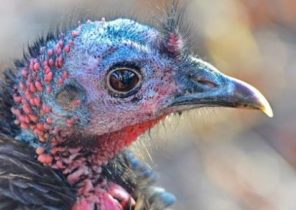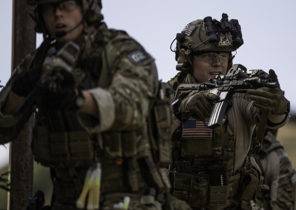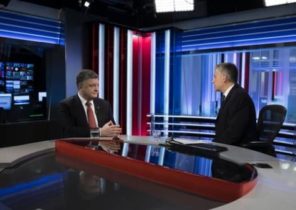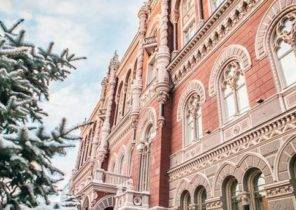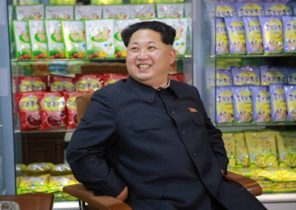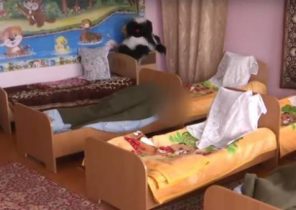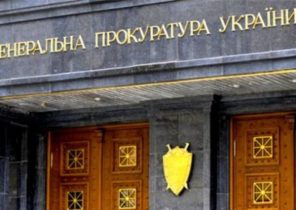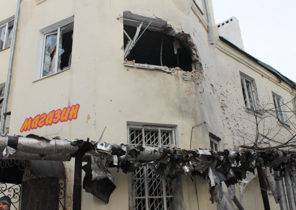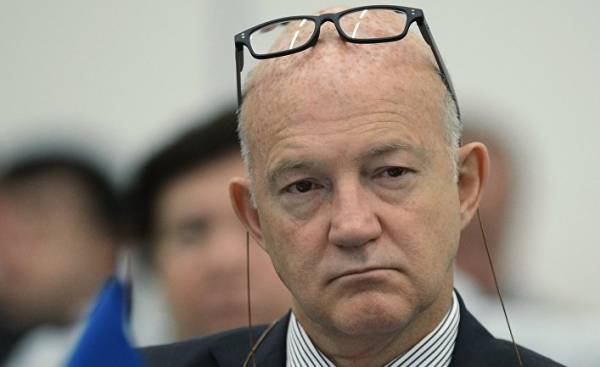
Their parents dreamed about. And they did it. 100 years after the revolution of 1917 descendants of the aristocrats returned to live and work in Russia. The country, which is now compatible with their values.
Daniel Tolstoy recalls his first trip to Russia with his father in 1989. He was 16 years old. “Mystical experience,” he smiles. Daniel welcomes guests at the majestic alleys with birches, which leads to the family property, now a Museum. We are 200 kilometers from Moscow, Yasnaya Polyana, the legendary HOMESTEAD, where his great-grandfather Leo Tolstoy wrote masterpieces “War and peace” and “Anna Karenina”. Here, among the cottages and woods, Daniel Tolstoy is engaged in an ambitious project of ecological agriculture. “There is black earth, one of the best in the country. And the perfect climate: plenty of rain and warm summers. Need only do not yawn, because the spring passes very quickly.”
Thick, the Romanovs, Apraksina… They wear these all the famous names, because they are descendants of the Russian aristocracy and officers of the white army. All of them expelled from the country of the revolution of 1917. In France, where he had emigrated many of them, we call them white Russian and we know their history, the difficult circumstances of their appearance. These well-educated, but those without money (most lost everything with the change of the regime) people become taxi drivers and workers. Generations later, many don’t speak Russian and never was the land of their ancestors. Anyway, 100 years after the revolution, the minority, who have been Pro-Russian, returns to his roots, once Russia ceased to be Soviet.
This is the case with born in Sweden, Daniel Fat. Although the return for him is associated with emotions (he says that the idea of farming came to him at a family reunion at the sight of the vast abandoned field), attributable primarily to the economy. The agricultural industry is a priority for the Putin government. “Standards are low, but the potential is huge. Russia is able to quickly catch up if he wants.” To use this, the descendant of Tolstoy bought 500 cows and 7 thousand hectares of land. He plans to grow crops and to start production of bread, cheese, sausage… He is counting on government subsidies which will make it easier to obtain thanks to the famous names and relations.
Rostislav Orlovskomu-Tanaevskoy managed to make a fortune in the new Russia. On his account, probably the most impressive financial achievements among all returnees in the country of the descendants of white immigrants. Although the businessman lives between London and Moscow, he tells about his Russian heritage with passion and pride. This is evidenced by the family tree with many ancestors and their pictures on the walls of his spacious office where he meets us. His great-grandfather was Governor of Tobolsk, where the environment of the last Tsar sent in 1917 before the murder in Ekaterinburg. After the revolution his family left Russia, first in Yugoslavia, then to Venezuela after world war II, “to be as far away from Stalin.”
In 1984, Rostislav Ordovsky-tanaevskoy worked for Kodak. He was invited to a film festival in Moscow. There he saw how hard it was to eat somewhere in the city. “In some absurd restaurants hung a sign “Closed for lunch”. Had to demand to be served. Unthinkable!” A few years later he settled in the Russian capital, opened the first factory and began to develop the network of fast food: Spanish, Swiss and Italian cuisine was a huge success on the background of the opening of the Communist bloc. “Then it was anarchy. Everything that was not forbidden was allowed. Laws on conducting business by foreigners was limited to just three pages.” He smiles at the memory of those times.
To smile is this: today, Rostislav owns about 200 restaurants. He is an active member of the community of white Russian and every year organizes receptions with the participation of representatives of different waves of emigration. “Us white people were brought up with the often idealized view of Russia. Home the first toast was always for Russia, and there was absolutely naive belief that one day we will return to liberate the country”.
Christopher Muraviev-Apostol waves away from nostalgia (it is, in its taste, too dark) and suggests an emotional connection with the mother country. 15 years ago this Swiss businessman and philanthropist embarked on a long adventure: he restored the Palace of his forefathers of the eighteenth century and made it the exhibition centre. He quickly enlisted the support appreciated his history of the media and the former mayor of Moscow Yuri Luzhkov, who was dismissed in 2010 for corruption. We meet him in the Moscow Palace. He with a smile out to us, apologizing for being late, answers the phone with the wife, a Brazilian, and begins a conversation in French or in English, showing typical it environment language skills. He was born in Brazil into a family that is known for participating in the uprising against the Emperor in the constitutional system with the movement of the Decembrists in 1825.
After the Bolsheviks seized power the family moved first to France and then to Geneva. In 1991 she was invited to Russia to follow in the footsteps of their ancestors. “They wanted to start the process of reconciliation, to return the whites in the country. Of course, the father was afraid to go, but at the same time he was filled with enthusiasm”. Christopher could not resist the charm of the country. “I grew up in Brazil, where almost not visible heritage of the past. So here I was fascinated by this attachment to history.” Then he worked with the finances of developing countries and redirected his career towards Russia to get more opportunity to go back there.
At that time the former Moscow Palace of the family, which became the Museum of the Decembrists in the Soviet Union, finally collapsed. “There still remained the Director, the Deputy, the woman in the closet. But it was all just for show, because really no one is paid. The building has targeted banks and casinos. I took immediate action and, fortunately, my draft was supported. First of all, because I wanted to create an open to the public place. In addition, muravyovs-Apostles still remained in the Soviet Union created a romantic way: we first Decembrists and revolutionaries, not the aristocracy.” It remains to decide only one question: he got the lease for 49 years, and the Palace remains the property of Moscow. He would like to make it indefinite. Its very obviously amused by the situation: “this is a little strange. White often dark and riddled with nostalgia. I returned to my roots through a great adventure. There is something romantic”.
David Henderson-Stewart (David Henderson-Stewart) is also immersed in the romantic business. This English descendant of white immigrants engaged in the restart of the famous brand of Soviet watches “Raketa”. In 2010, he bought founded by Peter I in 1821, the Petrodvorets watch factory. That were nationalized in the Soviet Union, became a state-owned enterprise and engaged in the issue of hours, including in honor of the Soviet cosmonaut Yuri Gagarin. Since 1990-ies it was abandoned, and the decision to buy it was risky. Whatever it was, David and his business partner, Frenchman of Russian origin, Jacques von Polje (Jacques von Polier) are convinced of the correctness of the step: “In 2010, everyone told us that’s crazy. “Made in Russia” no longer seemed attractive to anyone. People like to wear Swiss watches. Local would not do anything like that. For us it was different. The project was about us. We — Russian in the sense that the patriots, but we have a French sense of prestige and of the brand”.
Since then, the company has managed to attract big names: famous fashion model Natalia Vodianova (she gave his name to one of the models), a couple stars of the Bolshoi theatre, the Serbian Director Emir Kusturica and the descendant of the last king, Prince Rostislav Romanov, who lives between the UK and Russia and is on the Board of Directors of the company.
This raises the following question: how do the descendants of the aristocrats can maintain the Soviet brand? In a design Studio in the heart of Moscow, we have an answer. “We start from the pure aesthetics of the Russian avant-garde. This art direction has conquered the world far more than the ideas of Bolshevism, with a charming smile speaks eloquently Jacques von Polier, who loves his job, as evidenced by the t-shirt with the logo of “Missiles”. — At the same time, we refuse to spread nostalgia for the Soviet Union. We have removed hours of political symbols: Lenin, hammer and sickle”.
The fact that history remains a sensitive issue. Public opinion in white often perceived as outsiders who fled the country in the worst time for her. “During 70 years of communism, the civil war was a taboo subject. White troops were considered traitors. And the nature of history books has changed little,” laments David Henderson-Stewart. Together with his wife Xenia Jagiello, daughter of the priest of the Orthodox Cathedral of Alexander Nevsky in Paris, they fought for the opening of the exhibition of the White army. It took place in the Novospassky monastery, where the remains of the Romanovs.
This evening Xenia and David going to a small group of descendants of immigrants. They are preparing for religious service and try to practice singing. The table is served with borsch and herring under a fur coat, two typical Russian dishes. Blond children play on the balalaika and the domra. Sing old war hymns. “Music is the pillar of exile, it allows you to save language”, — says Ksenia. In her words, she “loves Russia” and decided to live here to give local school children. “Then they get open to much more creative and serious education. Nevertheless idyllic, all is not called. Sometimes it is difficult.”
In any case, let the descendants of white immigrants and has not found the lost Paradise of their ancestors, they see themselves in the values of modern Russia: religion and patriotism. “Putin — a true Orthodox — said Rostislav Ordovsky-tanaevskoy on behalf of the community. — He goes to Church, and white appreciate it. In addition, he raised the country, has returned to her place in the world, even his authoritarian steps and may not like”.
Similar opinion adhere and in “Rocket”. “With the advent of Putin, the people have regained pride and watch our step in this direction. The current political situation with the rise of patriotism, of course, plays to our hand.” Talking about it and the latest model to watch “Crimea 2014” was released after “the unification of Crimea with Russia.” Anyway, only a few have taken Russian citizenship, as officially was suggested to them by Vladimir Putin. Most always go home. “I’m French, France gave us when we arrived,” admits one of them. Others talk about the social benefits of the absence of Russian citizenship, others of administrative difficulties in obtaining it. “There is so much scribbling… And no benefits!” — dissatisfied with the other. Moreover, the distrust remained still. “Can I really trust the Russian government?” — asks Rostislav Ordovsky-tanaevskoy with a slightly guilty smile.
There is no clarity and how there will be commemorative events in honor of the 1917 revolution. This question remains difficult for many, although Vladimir Putin and said that he wanted reconciliation. “Rocket” in its turn, has proposed a new model: black dial, through which flows a drop of blood. Their author was Prince Rostislav Romanov.
